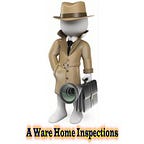The Guardian of Your Home: Hiring a Private Mold Inspector for Peace of Mind
Mold lurking in your house presents a silent health hazard. This microscopic enemy thrives in damp environments, releasing allergens and toxins that can trigger respiratory problems, allergies, and even chronic illness. While a general home inspection might highlight obvious mold issues, diving deeper often requires the expertise of a private mold inspector. But who are these inspectors, and why should you consider enlisting their services?
Understanding the Role of a Private Mold Inspector
Unlike general home inspectors who examine the overall structural integrity of a house, private mold inspectors specialize in identifying and assessing mold growth. They possess comprehensive knowledge of mold types, growth conditions, and the potential health risks they pose. Their role entails:
- Visual inspection: Thoroughly examining visible mold patches, noting their location, size, and potential source of moisture.
- Air and surface sampling: Collecting air and surface samples using specialized equipment to determine the type and concentration of mold spores present.
- Moisture detection: Employing moisture meters and other tools to identify hidden moisture issues that contribute to mold growth.
- Reporting and recommendations: Providing a detailed report outlining the findings, potential health risks, and recommendations for remediation.
When to Consider Hiring a Private Mold Inspector
Several Scenarios Warrant Involving a Private Mold Inspector
- Visible mold growth: If you see visible mold, especially in areas like basements, bathrooms, or near water leaks, a professional assessment is crucial.
- Unexplained health issues: Frequent headaches, allergies, respiratory problems, or persistent musty odors could be indicative of hidden mold exposure.
- Buying or selling a house: Having a pre-purchase inspection can uncover hidden mold problems and save you from costly surprises later.
- Post-renovation concerns: Following renovations involving water damage or moisture-prone areas, an inspection ensures proper mold prevention measures are in place.
Benefits of Hiring a Qualified Inspector
Investing in a Private Mold Inspector Yields Several Benefits
- Peace of mind: Knowing the extent of mold contamination and potential health risks empowers you to make informed decisions.
- Preventative measures: Early detection allows for prompt remediation, preventing further damage and health issues.
- Insurance claims: A professional report strengthens your case if filing an insurance claim for mold remediation.
- Safe remediation: The inspector’s recommendations guide the safe and effective removal of mold by qualified professionals.
Finding the Right Mold Inspector
With the growing awareness of mold issues, numerous inspectors operate in the market. Choosing the right one is crucial
- Qualifications: Look for inspectors certified by recognized organizations like the National Environmental Health Association (NEHA) or the American Council for Environmental Testing (ACET).
- Experience: Choose inspectors with proven experience in residential mold inspections, ideally familiar with your specific region’s building types and climate.
- Licensing and insurance: Ensure the inspector holds relevant licenses and carries liability insurance for your protection.
- Transparency and communication: Choose an inspector who clearly communicates their inspection process, fees, and report timeline.
- Reviews and references: Check online reviews and ask for references from previous clients to gauge their experience with the inspector.
Beyond the Inspection: Taking Action
A mold inspection report is the first step towards a healthy home. Once you receive the report, take prompt action based on the inspector’s recommendations:
- Address immediate health concerns: Consult a doctor if you experience respiratory issues or suspect mold-related health problems.
- Remediate the mold growth: Contact reputable mold remediation professionals using safe and effective methods.
- Prevent future mold growth: Implement recommended moisture control measures and address underlying sources of dampness.
Investing in a private mold inspector isn’t just about uncovering a silent threat; it’s about prioritizing your health and the well-being of your loved ones. By choosing a qualified professional, you gain the knowledge and tools to create a safe and healthy haven within your home. Remember, mold doesn’t have to be a lurking landlord — take control and reclaim your peace of mind, one spore at a time.
This article was written for informational purposes only and should not be taken as medical or professional advice. Always consult with qualified professionals for specific concerns.
Originally published at https://awarehi2.livejournal.com.
